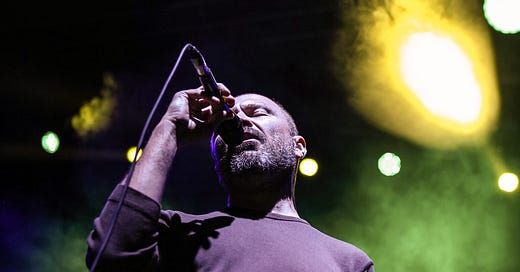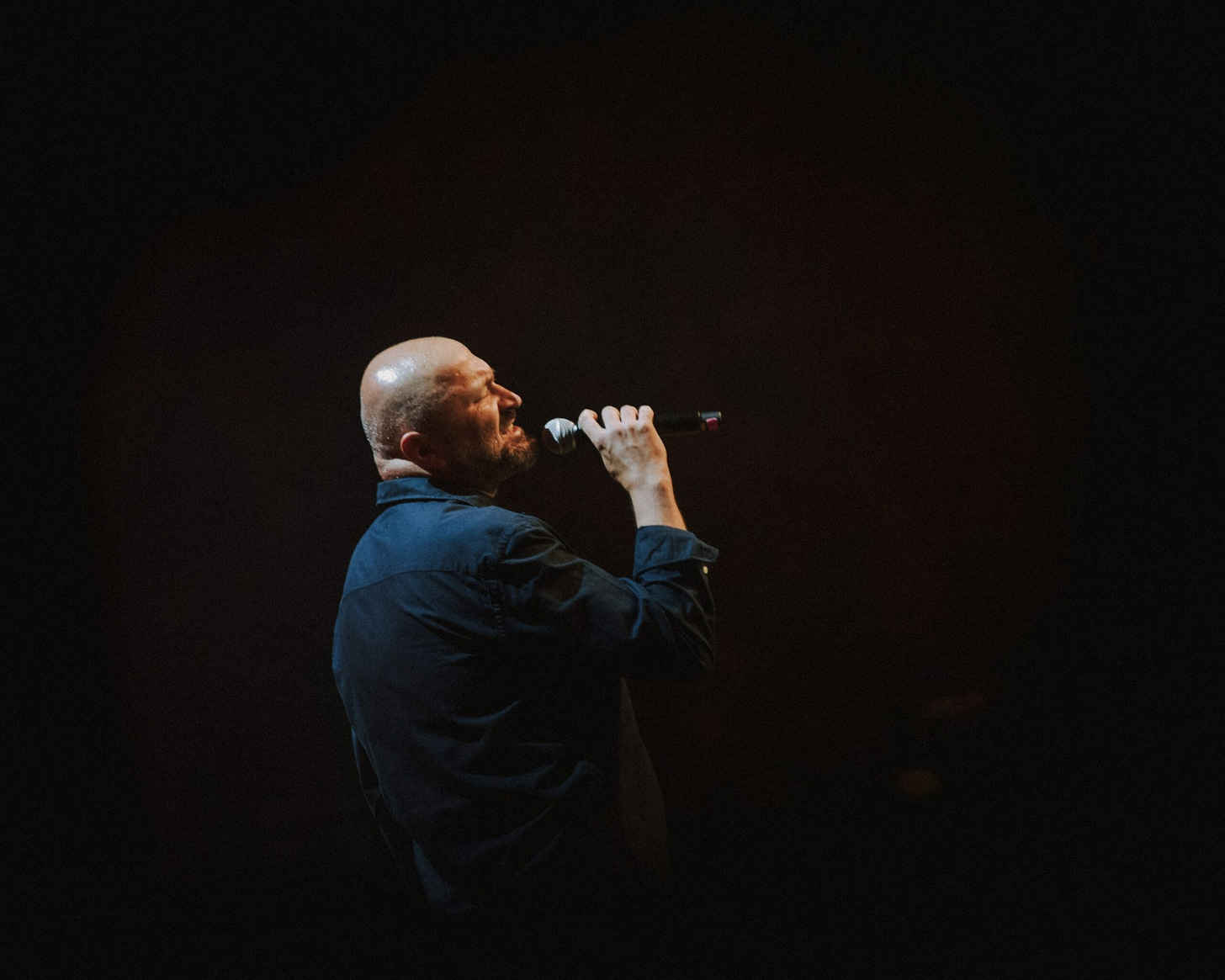Welcome to Vintage Cafe, a reader-supported newsletter exploring music, film, books, art, travel, and coffee. This January, enjoy a 20% discount on yearly subscriptions! Sign up now to unlock in-depth reviews, exclusive interviews, travel stories, and more—delivered straight to your inbox.
The fusion of poetry and music creates an enchanting world where words gain a new dimension. Both art forms are interconnected through rhythm and emotion, forging a profound bond with the reader or listener. Poetry can breathe life into melody, and music can amplify the meaning of verses. The combination of these two artistic forms, from classical lyrical songs to modern hip-hop lyrics, creates unforgettable experiences, enriching emotions and inspiring the mind to think. The mutual inspiration between poets and musicians not only enhances culture but also carries the power of poetry into everyday life.
Branislav Nikolov, or Pijan Slavej, is an artist who works in these seemingly separate realms—music and poetry. As the vocalist and creative force behind the band Foltin, his name is well-known among music lovers as the leader of one of Macedonia’s most inventive and entertaining bands. His performances reflect explosive energy, spontaneous creativity, and warmth, distinguishing him as one of today’s most charismatic artists. With Pijan Slavej, however, Nikolov embarks on a poetic and musical journey that unites the tradition of Macedonian chanson with contemporary poetic experience.
Nikolov’s poetry, under the pseudonym Pijan Slavej, is deeply rooted in the emotional and spiritual expression characteristic of Macedonian cultural tradition, but with a modern, unique voice that brings freshness and authenticity. He has authored four poetry books: Krevetizam i Horizontala, Poliraf, Srčki, and Jazik za Dvajca. His poems breathe with longing, passion, love, and drama, while also being deeply personal and original. Naturally, this poetic sensitivity spills into his music. His two albums, the eponymous debut Pijan Slavej and Nudist, are extensions of the creative path Nikolov traces with his songs. Nudist is not only a musical adventure but also a poetic journey where the lyrics flow into the music like an intimate monologue turned melody.
In this interview, Nikolov delves into the creative processes behind his two musical projects—Foltin and Pijan Slavej—as well as the connection between his poetry and music.
Vintage Cafe: Writing books and creating musical albums are distinct creative processes. Which process gives you greater freedom—writing poetry or composing music?
BN: Freedom comes from what depends on me and what doesn’t pull me away from myself. If I feel a burdensome weight in anything that should be my passion and joy, then I’m farthest from essential freedom and the truth about myself. The path one must walk can be long and arduous, but that has nothing to do with losing freedom. Both are in my nature. They are probably written in the starry night sky, in my natal chart, or in the lines of my palms.
Our mission in this world is to find the flame within us, a flame that, once brought out, will still give warmth and light to those around us.
VC: How does the city of Bitola influence your creativity and the projects Pijan Slavej and Foltin? Does your connection to Bitola play a role in your inspiration?
BN: It’s mostly on a subconscious level. We don’t choose where we are born. Of course, the community nourishes us with its characteristics and develops our collective spirit. By speaking and thinking in the Bitola dialect, I identify as belonging to it. I am from Bitola. Both bands are from Bitola. It’s not labeling or prejudice—it’s how we feel.
On a conscious level, we’ve even written a song about Bitola. We proudly played it for many years until we sort of wore it out. But soon we’ll be celebrating a major anniversary, and it will be inevitable to perform it again, with the same tremor and from the heart.
VC: The project Pijan Slavej brings a different energy compared to Foltin. How do you distinguish these two musical and poetic universes, and how do they complement each other?
BN: With Pijan Slavej, I give more space to the lyrical and poetic side, while Foltin is an expressionist cabaret focused on performance. Foltin is the experiment, the adventure, the youth, whereas Pijan Slavej is maturity expressed in a more traditional song form. It’s a new take on the old Macedonian chanson model.
But I neither intend to separate nor to complement or merge them. It all happens on its own.
Keep reading with a 7-day free trial
Subscribe to Vintage Cafe to keep reading this post and get 7 days of free access to the full post archives.






